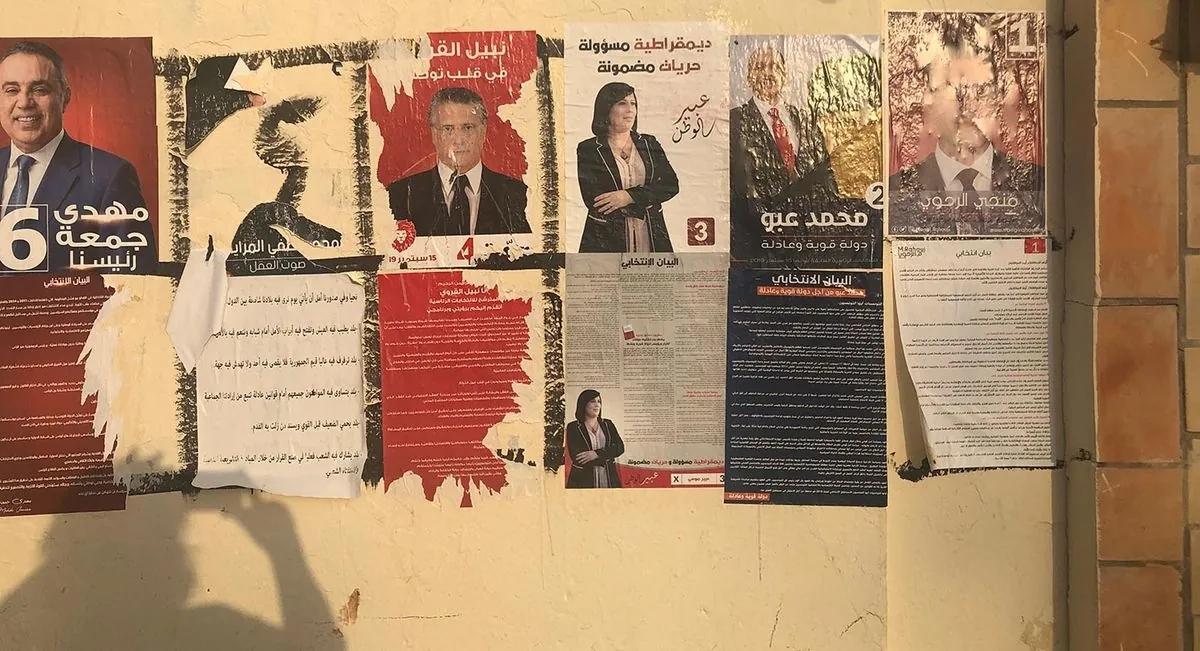Tunisia, the birthplace of the Arab Spring protests in 2011, is facing a critical juncture in its democratic journey. The upcoming presidential election on October 6, 2024, is widely viewed as a potential final blow to the nation's democratic aspirations.
President Kais Saied, who came to power in 2019 through a free and fair election, has since taken steps that have raised concerns about democratic backsliding. His actions include imprisoning potential election candidates, banning foreign election monitors, and implementing a new constitution that significantly expands presidential powers.
The election landscape appears heavily skewed in Saied's favor. Only two candidates have been approved to run against him, with one already facing legal troubles. This situation has led to calls for an election boycott from a significant portion of the population.
Tunisia's journey since the 2011 revolution that ousted long-time president Zine El Abidine Ben Ali has been marked by both progress and challenges. The country adopted a progressive constitution in 2014, but economic struggles have persisted, with high unemployment and inflation plaguing the nation of 12 million people.
Saied's rise to power was initially supported by young voters hoping for change. However, since seizing power in July 2021, he has ruled by decree, reshuffling the government, replacing judges, and implementing laws that critics say silence dissent. A "fake news" law enacted in September 2022 has been particularly controversial, with opponents arguing it stifles free speech and media freedom.
The international community has expressed concern over these developments. Some U.S. lawmakers have called for action to help restore democracy in Tunisia, introducing legislation to limit funding to the country. However, critics argue that European nations, particularly Italy, have prioritized anti-migration deals over democratic principles in their dealings with Tunisia.
"Young people organized Saied's electoral campaign in 2019. They are now abandoning him."
As Tunisia approaches this crucial election, the country's rich history and cultural heritage stand in stark contrast to its current political turmoil. From the ancient ruins of Carthage to the well-preserved Roman amphitheater of El Jem, Tunisia's landscape tells the story of a nation that has weathered numerous historical changes.
The outcome of the October 6 election will likely have far-reaching implications for Tunisia's future. As the country that sparked the Arab Spring faces this critical test of its democratic institutions, the world watches to see if the promise of those 2011 protests can be preserved or if Tunisia will join the ranks of nations where democratic aspirations have been thwarted by authoritarian tendencies.
